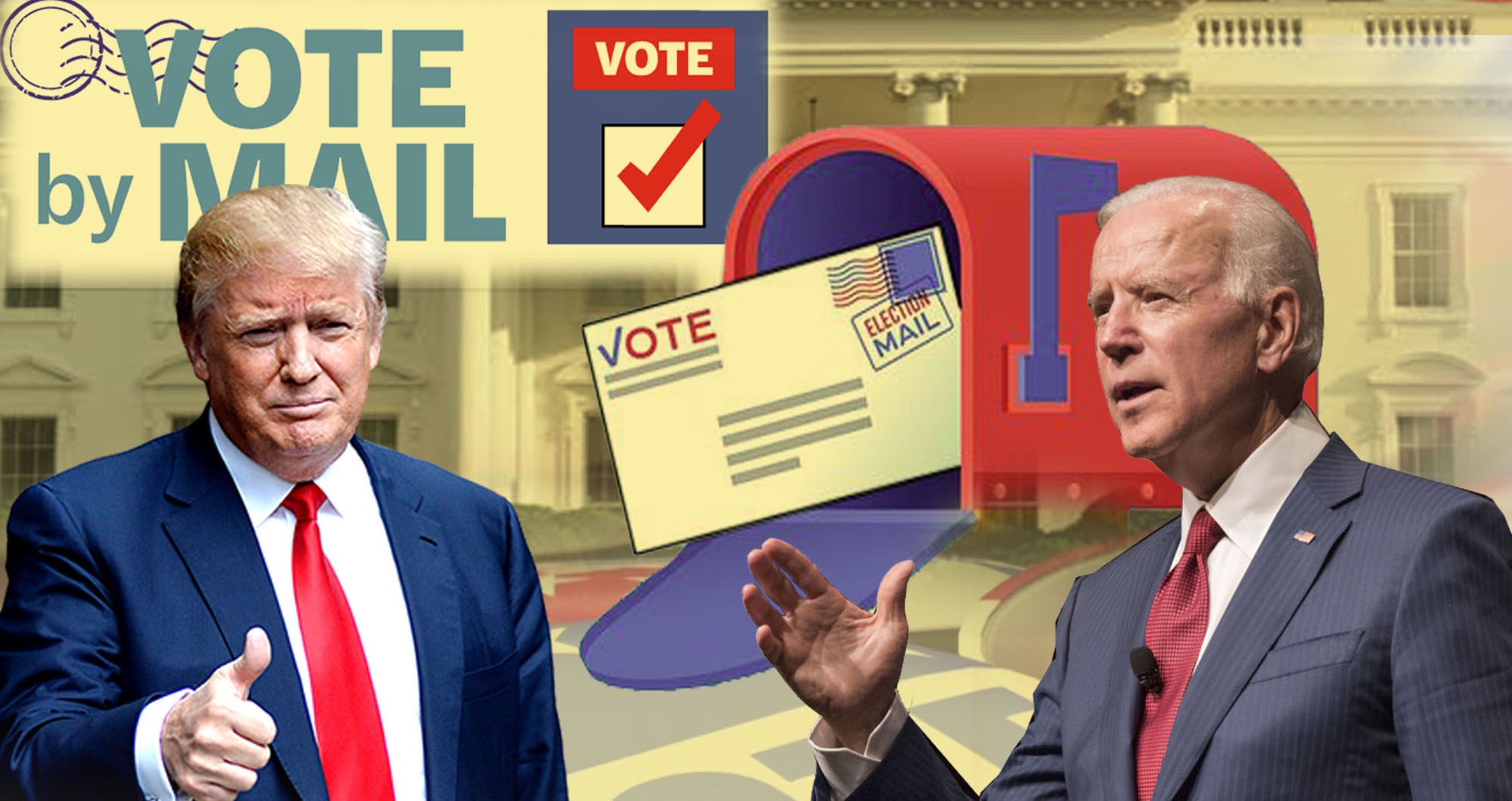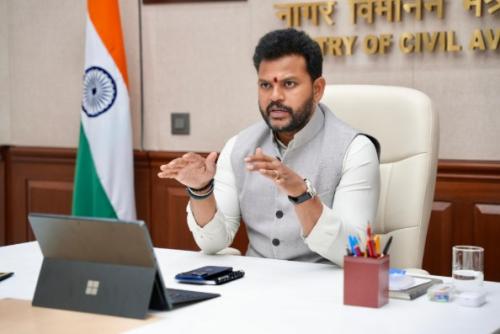By Shivaji Sengupta "If you can look into the seeds of time And say which grain will go and which will not..." William Shakespeare. Macbeth. I, I, 36 Decisions 2020 could very well turn out to be IN-decisions 2020. Not because Donald Trump's streaming rumors about corrupt or inefficient state election boards, but because of the overwhelming numbers anticipating to vote by mail. According to several polls round the country twice as many people want to vote by mail than those who intend to cast their votes in polling stations in person. The reason for this is, obviously, COVID-19. For Democrats this may be a worry. 70% of the Democrats plan to vote from home, as opposed to less than 50% of the Republicans. What this means is that unless Biden has a near landslide victory on Election Day, the final election result announcing who will be the next president might take a couple of weeks. Knowing Trump, he will first try to declare himself victorious because the voting booth results will be declared first. If only 30% of Democrats vote in person, chances are that early counting will have Donald Trump ahead. Then, as mail-in ballots are counted, and Biden begins to surge ahead, Trump will declare the election rigged and try to nullify the results. He will appeal to the Supreme Court which, after the death of Ruth Beder Ginsberg, his decision to name an arch conservative to the Court will give them a 6-3 majority. If put in a position to decide on the election, they might vote to declare Trump the winner, just as the Florida Supreme Court with a conservative majority did in 2000. Then, George W. Bush benefitted. This column is not being written to alarm American voters. I dare say that they have already heard this, already had the above scenario painted for them by other journalists. What the American people need to do is to be patient as the results start coming out, and wait for the proper authorities do their jobs - election boards, the two parties' officials, and their lawyers. We must take heart from the fact that never before in the U.S. have the elections fallen prey to voter fraud. This is a fact. The pessimists might argue that never before have we had to deal with such a massive vote by mail situation. That is why the results might be late, but not fraudulent. The pessimists might then argue that Donald Trump might be in a hurry to declare himself the winner. My advice to the American people is to trust the system. America is the most experienced country in managing democracy. It has been doing so for 244 years. Let us be confident that it won't let us down. We may not trust the most important person in the election, the president himself. But let us trust the governmental machine that has been managing general elections in 1788. Of the two most important actors, Donald Trump and Joe Biden, Americans trust the latter more as a man of integrity, as more humane and empathic than his incumbent rival. Currently, Biden is ahead in all the polls including in Florida, the "battleground" state most likely to go for Trump. But even here, pessimistic Democrats will want to remind us of the nightmare Election Day of 2016 when Trump beat Hillary Clinton contradicting practically all the polls. Precisely because of that upset win by Trump, election analytics are concentrating on the battleground states where neither is assured of victory: Arizona, Georgia, Michigan, Wisconsin, Minnesota and Florida. Although, Biden is still leading in these states, in Georgia, Wisconsin, and Florida the lead is so small, and well within. the margin of error, that the results there could be a statistical tie. In other words, the Democrats, once bitten, twice shy, are taking nothing for granted, except perhaps one major thing. The former Vice President does not seem to be encouraging his campaign staff to go out in person door to door, to urge the American people to vote, offer help like driving elderlies to vote like they have done in the past. The reason for that is, of course, the pandemic (nearly seven million ill, over 200,000 dead!). But the Republicans are doing that, his ground staff, mask and all, and Trump himself are going out every week to the battleground states to really his supporters. By contrast, I see Biden going out less frequently. I had expected to see much more of Kamala Harris navigating the whole country. In my opinion they are putting too much weight on electronic campaigning, texts, Zoom, Goigle Meet and so on. The older American public have not taken to the electronic media as much as the younger generation. And guess what? It is the younger people who tend not to vote. Baby boomers, many of whom, like me, are now senior citizens, do. They appreciate the in-person canvassing as long as - this year - they were masks and maintain social distancing. This is a remarkable difference between these two actors. The third main actor in Decisions 2020 is, ironically, not alive any more, but her absence might play a massive role in the elections. She is Justice Ruth Bader Ginsberg, a justice in the Supreme Court of iconic proportions. She is being laid to rest even as I write this column. Her demise, less than two months from Election Day has resulted in a huge set back for the Democrats for the reasons mentioned above. In this milieu, the Republican leadership, including Trump, have behaved with "shameful haste." Consider the circumstances. In February 2016, nine months before the November presidential elections they had denied President Barak Obama his right to nominate a justice to the Supreme Court after the death of Justice Antonin Scalia. Their reasoning was that Obama was a lame-duck president; the American people had a right to choose a new president who could then nominate a replacement. Consequently, for more than a year the Supreme Court functioned with eight justices. However, just last week on Friday, the stalwart Justice Ruth Beder Ginsberg, after nearly 27 years in the Supreme Court, passed away fighting a losing battle with pancreatic cancer; just 47 days before the presidential elections. Guess what those very same Republican senators did. They immediately sought to confirm President Trump's choice to replace Justice Ginsberg, never mind that there are barely six weeks left for Election Day (instead of the nine months in the case of Barak Obama), that early elections had already begun in some states; never mind what they had said in 2016, invoking the American people. One of them, Senator Lindsay Graham had then said that it would be wrong for senators to consider a president's nominee for the Supreme Court in an election year, that they ought to wait until the elections were over, and a new president was elected. Senator Graham clairvoyantly declared that "in the future should a similar situation arrive, you can quote me on this." Well, Honorable Senator, we are quoting you, what is your position now? Straight faced, Mr. Graham replies, "We will confirm Mr. Trump's nominee as soon as possible." Yes, politicians lie. There is a thinly veiled caveat here that the Senate Majority leader, Mr. Mitchell McConnel, has put forward. The difference between now and 2016 was, he said, that then Congress was divided between President Obama, a Democrat and a Republican senate. This time around, they are of the same party. McConnel is further arguing that in 2016, when the Senate had refused to take a vote on Obama's choice of a Supreme Court nominee, nine months before Election Day, the American people could not have perceived the Senate's decision to be so wrong because they returned a Republican majority in the Senate on top of a Republican president in 2016. They see this gesture as the American people trusting the Republican Senate. At its worst, this is jiggery-pokery. At its best this is a Machiavellian argument of convenience. Public memory is notoriously short. The Republican refusal to take a vote on President Obama's nominee in February 2016, was not a principal focus in November. It wasn't an election issue nine months later. This year, with 38 days left for election, and with an aggressive Republican confirmation of an arch conservative justice to the Supreme Court, it will be an issue. 62% of likely voters say that this is the wrong time to vote for a Supreme Court judge. They ought to wait till after the election. Justice Ginsberg's dying wish that the new nominee be chosen by whoever is president in 2021 was summarily rejected by Donald Trump as a lie concocted by Congressman Adam Schiff. Republicans, beware. Trump, beware!
Decisions 2020: America's Future Hangs in Balance
- by Rinku
- September 29, 2020 2 minutes

Decisions 2020












